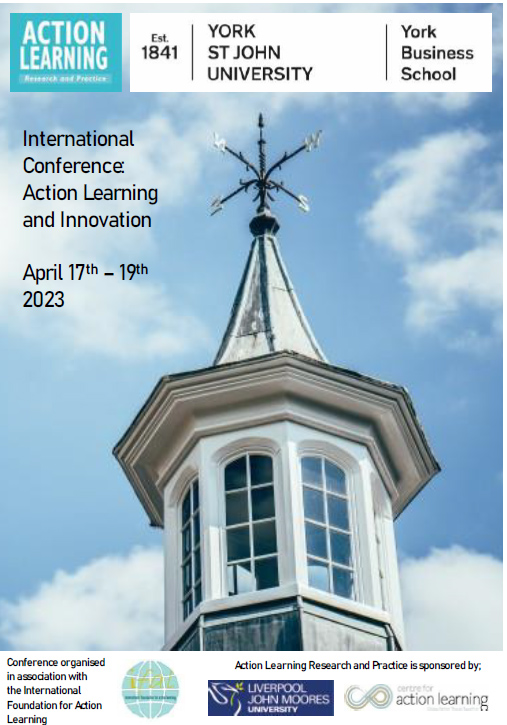The 8th International Action Learning Conference was hosted by York Business School on April 17-19.
The conference was organised by the journal Action Learning: Research and Practice and YBS, in association with the International Foundation for Action Learning. It attracted 65 delegates from the UK, Ireland, Canada, the US, South Africa, Spain, Germany, Norway and France, between them delivering 25 papers, a symposium with six speakers, and nine interactive workshops.

Action learning is an approach to bringing about changes in organisations and communities, and achieving individual and group learning and development. It was first developed by Reg Revans in the mid-twentieth century in work the carried out with large UK organisations. It is related to, but is distinct from, action research, and in some projects action research and action learning take place side by side.
A range of varieties of action learning are practised today in a wide range of settings. Typical characteristics of action learning are:
There are many varieties of action learning, but most have the following components[i]:
1) A problem or opportunity… that is not amenable to an expert solution
2) A group of people who work together, where group members act as critical
friends to challenge and support each other’s learning.
3) A commitment to taking action, where implementation, rather than recommendations
to others, is central. [Although this is not always the case – the action might be to make recommendations.]
4) A commitment to learning that goes beyond merely solving immediate problems.
An increase in the ability to adapt to change is the ultimate outcome.
5) Group members engage in a questioning and reflective process. Learning happens
through asking questions, investigation, experimentation and reflection, rather
than through reliance on external expertise.
Action learning is currently being used in YSJU to support academic staff who are working towards the Fellowship of the Higher Education Authority.
At the conference, four papers were presented by YSJU staff, alongside papers by academics from 18 other universities, and professionals from a variety of consultancy organisations. The theme of the conference was action learning and innovation – including the use of action learning to enable organisations to innovate, and also new developments in action learning practices.
Topics addressed included the use of action learning to
- achieve coordinated action by groups from different professional and organisational backgrounds to bring about complex changes
- help small businesses to develop innovative strategies
- develop leadership and safeguarding practices in a charity
- coach and develop teams in times of uncertainty
- help young people facing multiple adversities
- enable organisational learning in a several different settings
- support leadership development on MBA programmes
The International Action Learning Conference usually takes place every two years, but that pattern has been interrupted by COVID, and this was the first in-person conference since 2018. Long-time members of the community were happy to be able to meet again, and also very pleased to welcome new faces.
George Boak
Associate Professor in Leadership and Innovation
York Business School
Co-editor Action Learning: Research and Practice
[i] Extracted and abridged from: Paul Coughlan & David Coghlan (2021) What happens to P? Lessons from network action learning research, Action Learning: Research and Practice, 18:2, 91-101